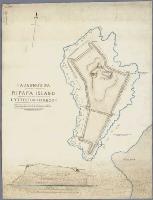Waikākahi was the name of a pā situated under the foothills to the west of Poranui (Birdlings Flat) at the Horomaka (Banks Peninsula) end of Kaitōrete spit.
Waikākahi means the place where kākahi (a fresh water shellfish) was found
.
Waikākahi pā was originally established by the chief Tūtekawa who was later killed in battles with incoming Ngāi Tahu led by the famed leader, Moki. Today it is a farmland area of undulating paddocks that stretches from the Akaroa/Christchurch highway down to the shores of Te Waihora. It is a spiritually and culturally significant site for Ngāi Tahu hapū of the Horomaka (Banks Peninsula) area.
Waikākahi is famous for being the starting place of the kai huanga (eat relations) dispute.
The Kai Huānga Dispute
This feud started when a woman called Murihaka violated tapu by wearing a kurīawarua (dogskin cape) which belonged to the chief, Te Maiharanui, who was away in Kaikōura at the time. Te Maiharanui was an ariki with distinguished ancestry. His relatives at Taumutu resented the sacrilege of Murihaka’s action and killed two of her relatives in an act of revenge.

The following year was 1827 and again an attack was led against Wairewa. This time, the people of Wairewa were ambushed on the water and overcome by musket warfare. The final and ultimate insult to an enemy was to eat the victim. So many relatives were eaten after this battle that it became known as kai huānga meaning ‘to eat a relative’.
This feud petered out only when the Ngāi Tahu tribe was forced to regroup under the threat of Te Rauparaha.
Sources
- Harry Evison C. The Long Dispute: Māori Land Rights and European Colonisation in Southern New Zealand, Canterbury University Press, 1997
- Akaroa and Banks Peninsula 1840-1940: Story of French Colonising Venture and Early Whaling Activities: The First Settlement of Canterbury, Akaroa Mail Co. Ltd., Akaroa, 1946
-
Taununu’s pa, Ripapa Island, Lyttelton Harbour,
Copied [ca. 1910] from plan made by Fredk Strouts in 1872…
, in our Digital Maps collection

